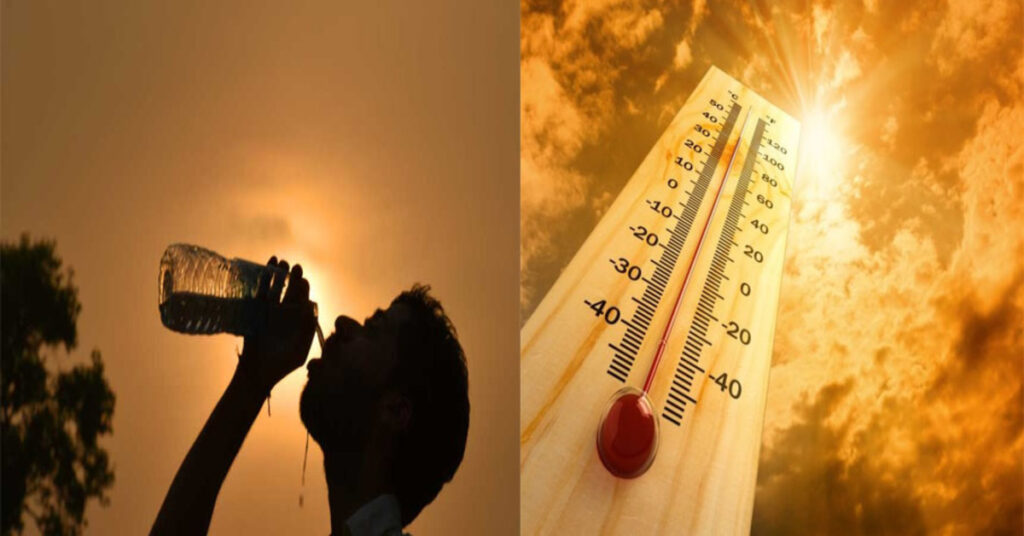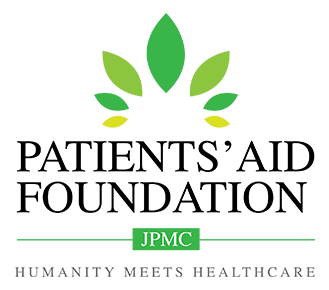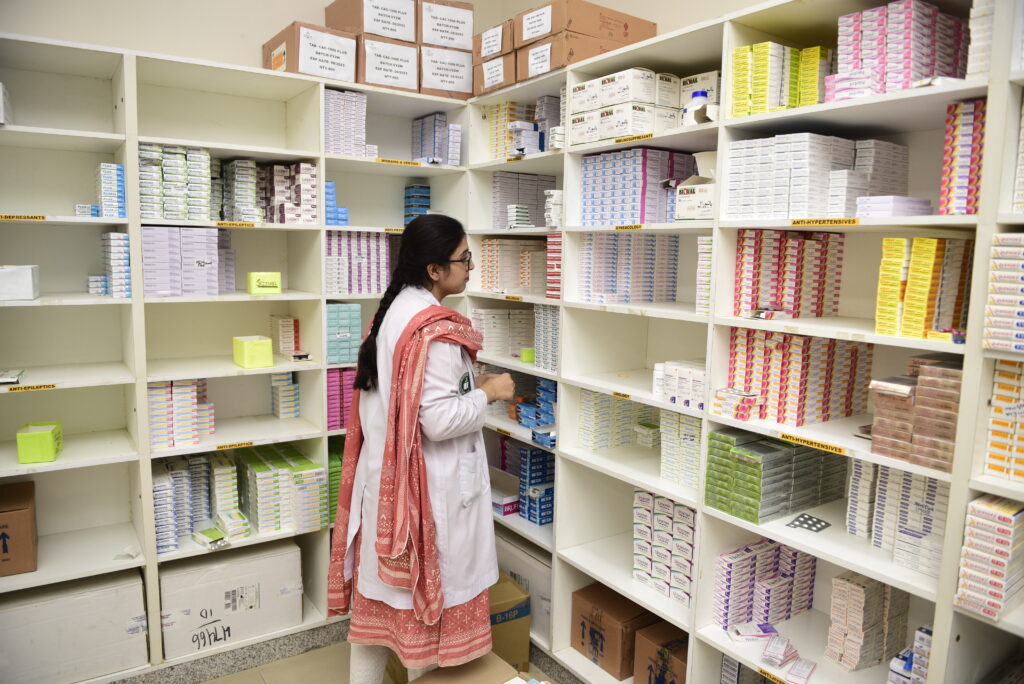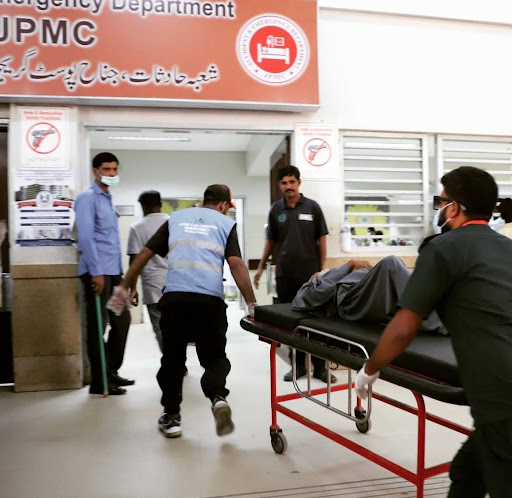The Impact of Extreme Temperatures in Karachi! How to Protect Yourself during Heat Waves

Sindh is no stranger to scorching sun and relentless heat. With summer stretching from mid-March to November, the region endures some of the highest temperatures in Pakistan. May, often the hottest month of all, marks the beginning of a dangerous heat wave season, especially for Karachi, where urban density and limited greenery intensify the impact. For millions living in this city, these peak summer months aren’t just uncomfortable, they bring serious health risks and daily struggles to stay cool, hydrated, and safe.
This intense heat is especially dangerous for outdoor workers such as laborers, farmers, fishermen, and construction staff, who endure long hours under the scorching sun without access to proper cooling or hydration. However, the impact of extreme temperatures isn’t limited to those working outside. Children, university students, office-goers, and even women at home, especially those managing kitchen chores, are all vulnerable to heat-related stress. Karachi’s climate and lack of regular rainfall only worsens the situation, offering little natural relief from rising temperatures. With no winter rains this year, hopes are pinned on an early monsoon to ease the intensity. Until then, Karachi’s summer continues to bring not only discomfort but also serious health risks, from dehydration and heat exhaustion to life-threatening conditions like heatstroke.
Why Karachi is Facing Severe Weather Conditions
Karachi is one of the worst affected cities in the world impacted by global warming. The city’s dense urban landscape, with concrete buildings, asphalt roads, and limited green spaces, creates an “urban heat island” effect. This phenomenon causes urban areas to heat up much more than surrounding rural regions because concrete and asphalt absorb and retain heat throughout the day and night.
During heatwaves, temperatures in Karachi often soar above 45°C, pushing the human body beyond its comfort zone and placing millions at risk. Prolonged exposure to such extreme heat can cause the body’s internal temperature to rise dangerously, sometimes resulting in fevers ranging from 102°F to 105°F. This can be an early warning sign of heat exhaustion or even heatstroke, a serious, potentially life-threatening condition. Vulnerable groups such as the elderly, children, outdoor laborers, and individuals without access to cooling systems are especially at risk. Without timely hydration and cooling, such fevers can lead to organ stress, unconsciousness, or worse. That’s why it’s crucial to recognize early symptoms and take immediate precautions during these high-risk heatwaves.
Heatstroke, a dangerous medical emergency caused by prolonged exposure to extreme heat, is a leading cause of death during these waves. The World Health Organization (WHO) defines heatstroke as a life-threatening condition marked by dangerously high body temperature such as 104-105 and organ failure.
Patients’ Aid Guide to Heatwave Precautions in Karachi
Whether you’re a student, office-goer, or caretaker of children or the elderly, understanding how to protect yourself during a heatwave can be life-saving. At Patients’ Aid, we’re committed to creating awareness about how to care for yourself and your loved ones with smart, practical steps.
- Stay Hydrated Throughout the Day: Your best defense against heat-related illness is water. Even if you don’t feel thirsty, drink water anyway. Encourage your children to carry a water bottle to school and consume cool drinks throughout the day. Office workers should make it a habit to drink cold water regularly and reduce the intake of caffeine and hot beverages. Staying hydrated helps regulate body temperature and reduces the risk of heatstroke.
- Avoid Direct Sun Exposure: Whenever possible, remain indoors during the hottest hours of the day, typically between 12 PM and 3 PM. If going out is necessary, plan your tasks early in the morning or late in the evening. Always seek shade, and avoid prolonged exposure to the sun. This is one of the most effective ways to prevent heat exhaustion.
- Dress for the Weather: Wear lightweight, loose-fitting clothes in light colors. Fabrics like lawn and linen allow your body to breathe and help sweat evaporate. Avoid dark-colored or synthetic materials, which can trap heat and increase discomfort.
- Protect Vulnerable Family Members: Children, the elderly, and individuals with chronic health conditions are particularly vulnerable during extreme heat. Ensure they stay cool, hydrated, and in shaded or air-conditioned spaces. Monitor them for signs of fatigue, dizziness, or confusion, which could indicate heat exhaustion.
- Cool Your Body Effectively: If your body feels overheated, soak a towel in cold tap water and place it on your neck or forehead. Taking cold showers can also provide quick relief. Keep a cool, damp cloth in the refrigerator for quick use.
- Keep Indoor Spaces Cool: Close curtains and blinds to block out the sun and reduce indoor temperatures. Stay in rooms that receive less sunlight, and use ceiling fans or portable fans for air circulation. If you have an air conditioner, make sure it’s serviced and functioning properly.
When your body is exposed to extreme heat, it struggles to maintain its normal temperature. This can lead to dehydration, heat exhaustion, or even heatstroke, a potentially life-threatening condition where the body’s internal temperature rises dangerously high.
This is exactly why these heat wave precautions are not just helpful, they’re essential for protecting your health and well-being.
Wrapping Up
At Patients’ Aid Foundation, we are not just committed to providing high-quality healthcare, we are driven by compassion. As a nonprofit organization transforming Jinnah Postgraduate Medical Centre, we stand by those who have no one else, offering free medicines, emergency care and enabling quality, life-saving treatments for those who cannot afford.
But we can’t do it alone. Your support through Sadaqah/Zakaat/Khairaat can help us. As a caring and responsible member of our society, you have the power to make a real difference. Whether it’s a child battling illness, a mother struggling through heatstroke, an elderly father needing urgent care, or someone’s loved one fighting cancer, your help can change their story.
Join our “Roz ka Sadqa” initiative and be part of a movement that brings hope, healing, and dignity to those who need it the most. Together, let’s build a future where no one suffers in silence, and no one is denied the right to healthcare.
Now is the time to act. Let’s come together and do what humanity demands, because saving lives is the greatest act of kindness. As mentioned in the Holy Qur’an, Surah Al-Qasas: “Whoever comes with a good deed will be rewarded with something better.”



